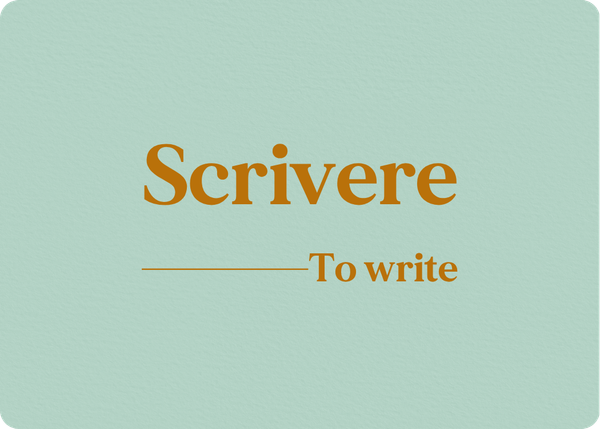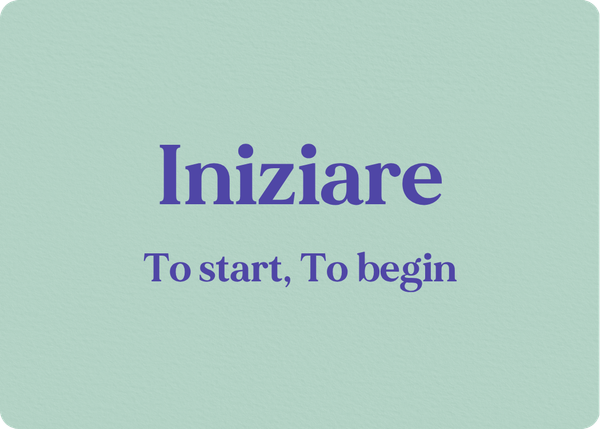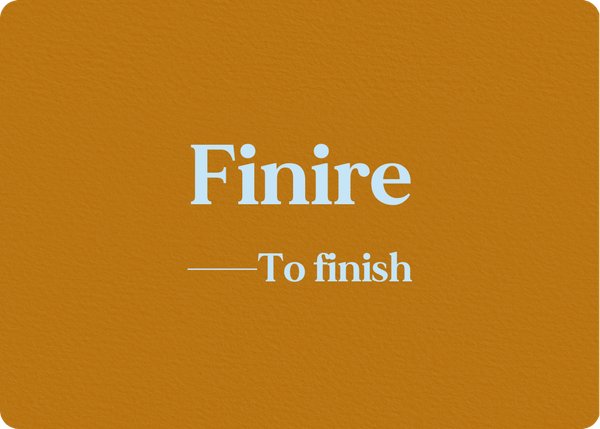What is Scrivere?
Scrivere is an Italian verb meaning "to write". It belongs to the second conjugation (-ERE verbs), but presents some irregularities. This verb is useful for expressing writing activities, communication through written words, composing texts, and creating literary works.
Key Features of Scrivere:
- Type: Irregular second conjugation verb (-ERE)
- Meaning: To write, to compose, to spell
- Irregularities: Simple past (scrissi, etc.), past participle (scritto)
- Auxiliary verb: Uses "avere" (to have) for conjugation in compound tenses
- Past participle: Scritto
Indicativo – Indicative Mood
Presente (Present Tense)
| Person | Conjugation |
|---|---|
| io | scrivo |
| tu | scrivi |
| lui/lei | scrive |
| noi | scriviamo |
| voi | scrivete |
| loro | scrivono |
Example:
Scrivo subito una e-mail al direttore.
I'm writing an email to the director right away.
Passato Prossimo (Present Perfect)
| Person | Conjugation |
|---|---|
| io | ho scritto |
| tu | hai scritto |
| lui/lei | ha scritto |
| noi | abbiamo scritto |
| voi | avete scritto |
| loro | hanno scritto |
Example:
Guido ha scritto una canzone.
Guido wrote a song.
Imperfetto (Imperfect)
| Person | Conjugation |
|---|---|
| io | scrivevo |
| tu | scrivevi |
| lui/lei | scriveva |
| noi | scrivevamo |
| voi | scrivevate |
| loro | scrivevano |
Example:
Da bambina, Alessandra scriveva molte filastrocche.
As a child Alessandra used to write many nursery rhymes.
Trapassato Prossimo (Past Perfect)
| Person | Conjugation |
|---|---|
| io | avevo scritto |
| tu | avevi scritto |
| lui/lei | aveva scritto |
| noi | avevamo scritto |
| voi | avevate scritto |
| loro | avevano scritto |
Example:
Ti avevano già scritto quando li hai chiamati?
Had they already written to you when you called them?
Passato Remoto (Simple Past)
| Person | Conjugation |
|---|---|
| io | scrissi |
| tu | scrivesti |
| lui/lei | scrisse |
| noi | scrivemmo |
| voi | scriveste |
| loro | scrissero |
Example:
Dante scrisse la Divina Commedia.
Dante wrote the Divine Comedy.
Trapassato Remoto (Past Anterior)
| Person | Conjugation |
|---|---|
| io | ebbi scritto |
| tu | avesti scritto |
| lui/lei | ebbe scritto |
| noi | avemmo scritto |
| voi | aveste scritto |
| loro | ebbero scritto |
Example:
Dopo che ebbe scritto il messaggio, lo inviò subito.
After he had written the message, he sent it immediately.
Futuro Semplice (Simple Future)
| Person | Conjugation |
|---|---|
| io | scriverò |
| tu | scriverai |
| lui/lei | scriverà |
| noi | scriveremo |
| voi | scriverete |
| loro | scriveranno |
Example:
Domani scriverò la relazione che mi ha chiesto il professore.
Tomorrow I will write the report that the professor asked me for.
Futuro Anteriore (Future Perfect)
| Person | Conjugation |
|---|---|
| io | avrò scritto |
| tu | avrai scritto |
| lui/lei | avrà scritto |
| noi | avremo scritto |
| voi | avrete scritto |
| loro | avranno scritto |
Example:
Entro domani avrò scritto un altro capitolo della tesi.
By tomorrow I will have written another chapter of my thesis.
Congiuntivo – Subjunctive Mood
Presente (Present Subjunctive)
| Person | Conjugation |
|---|---|
| che io | scriva |
| che tu | scriva |
| che lui/lei | scriva |
| che noi | scriviamo |
| che voi | scriviate |
| che loro | scrivano |
Example:
È importante che tu scriva chiaramente.
It's important that you write clearly.
Passato (Past Subjunctive)
| Person | Conjugation |
|---|---|
| che io | abbia scritto |
| che tu | abbia scritto |
| che lui/lei | abbia scritto |
| che noi | abbiamo scritto |
| che voi | abbiate scritto |
| che loro | abbiano scritto |
Example:
È il miglior libro che lui abbia mai scritto.
It's the best book he has ever written.
Imperfetto (Imperfect Subjunctive)
| Person | Conjugation |
|---|---|
| che io | scrivessi |
| che tu | scrivessi |
| che lui/lei | scrivesse |
| che noi | scrivessimo |
| che voi | scriveste |
| che loro | scrivessero |
Example:
Era necessario che scrivessimo il rapporto.
It was necessary that we write the report.
Trapassato (Past Perfect Subjunctive)
| Person | Conjugation |
|---|---|
| che io | avessi scritto |
| che tu | avessi scritto |
| che lui/lei | avesse scritto |
| che noi | avessimo scritto |
| che voi | aveste scritto |
| che loro | avessero scritto |
Example:
Benché avessi scritto loro molte volte, non risposero mai.
Although I had written to them many times, they never replied.
Condizionale – Conditional Mood
Presente (Present Conditional)
| Person | Conjugation |
|---|---|
| io | scriverei |
| tu | scriveresti |
| lui/lei | scriverebbe |
| noi | scriveremmo |
| voi | scrivereste |
| loro | scriverebbero |
Example:
Scriveresti una poesia per me?
Would you write a poem for me?
Passato (Past Conditional)
| Person | Conjugation |
|---|---|
| io | avrei scritto |
| tu | avresti scritto |
| lui/lei | avrebbe scritto |
| noi | avremmo scritto |
| voi | avreste scritto |
| loro | avrebbero scritto |
Example:
Luisa non avrebbe mai scritto quelle parole.
Luisa would never have written those words.
Imperativo (Imperative)
| Person | Conjugation |
|---|---|
| (tu) | scrivi |
| (lui/lei) | scriva |
| (noi) | scriviamo |
| (voi) | scrivete |
| (loro) | scrivano |
Example:
Scrivi qui il tuo nome!
Write your name here!
Indefinite Moods
Infinito (Infinitive)
- Presente (Present): scrivere (to write)
- Passato (Past): avere scritto (to have written)
Examples:
Mi piace scrivere lettere a mano.
I like to write letters by hand.
Credo di aver(e) scritto tutto correttamente.
I believe I have written everything correctly.
Participio (Participle)
- Passato (Past): scritto (written)
La lettera scritta da Daniela è stata molto commovente.
That painting is even more beautiful when seen up close.
Gerundio (Gerund)
- Presente (Present): scrivendo (writing)
- Passato (Past): avendo scritto (having written)
Antonio ha imparato molto scrivendo per il giornale.
Antonio has learned a lot by writing for the newspaper.
Avendo scritto il discorso in anticipo, parlò con maggiore sicurezza.
Having written the speech in advance, he spoke with more confidence.
The verb Scrivere at a glance: Key tenses you need
| Present | Present Perfect | Imperfect | Present Subjunctive | Imperfect Subjunctive | Present Conditional |
|---|---|---|---|---|---|
| io scrivo | io ho scritto | io scrivevo | che io scriva | che io scrivessi | io scriverei |
| tu scrivi | tu hai scritto | tu scrivevi | che tu scriva | che tu scrivessi | tu scriveresti |
| lui/lei scrive | lui/lei ha scritto | lui/lei scriveva | che lui/lei scriva | che lui/lei scrivesse | lui/lei scriverebbe |
| noi scriviamo | noi abbiamo scritto | noi scrivevamo | che noi scriviamo | che noi scrivessimo | noi scriveremmo |
| voi scrivete | voi avete scritto | voi scrivevate | che voi scriviate | che voi scriveste | voi scrivereste |
| loro scrivono | loro hanno scritto | loro scrivevano | che loro scrivano | che loro scrivessero | loro scriverebbero |
Conclusion
Mastering the conjugation of "scrivere" is useful for expressing writing, composition, and written communication in Italian. As an irregular second conjugation verb, it requires attention to its irregular forms.
Remember the key points:
- Uses "avere" as auxiliary verb in compound tenses
- Irregular in simple past and past participle
- Past participle is "scritto"
- Essential for daily communication, from casual notes to formal correspondence
Keep practicing with real sentences and contextual examples to master this Italian verb!





